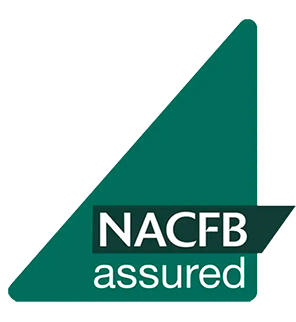Borrow up to
£10M
Apply in Under
1 Minute
Search Over
250+ Lenders
Decisions in under
60 Mins*
Understanding Bridging Finance
How Does Bridging Finance Work?
Bridging finance is a type of short-term loan that is used to bridge the gap between the purchase of a new property and the sale of an existing property. This type of finance is typically used by property developers, investors, and homeowners who are looking to purchase a new property but have not yet sold their existing property. Bridging finance is secured against the existing property and is usually repaid once the property is sold or a long-term mortgage is secured.
Why Use Bridging Finance?
There are several reasons why someone may choose to use bridging finance. For property developers, it can be used to fund the purchase of a new property while they wait for the sale of an existing property to go through. For homeowners, it can be used to purchase a new property before selling their existing property, allowing them to move quickly and secure their new home. Investors may also use bridging finance to fund a property purchase or refurbishment project, with the intention of selling the property at a later date for a profit.
When to Use Bridging Finance?
Bridging finance is typically used when a buyer needs to act quickly to secure a property or when they need to finance a project that requires immediate funds. It can also be used when a traditional mortgage is not available, such as when a property is not considered suitable for a mortgage due to its condition or location.
Who Can Use Bridging Finance?
Bridging finance is available to a range of borrowers, including property developers, investors, and homeowners. To be eligible for bridging finance, borrowers will typically need to have a suitable property to use as security and a clear exit strategy for repaying the loan.
How to Secure Bridging Finance?
To secure bridging finance, borrowers will typically need to go through a few key steps:
Application: The first step is to make an application for bridging finance with a lender. This will typically involve providing details about the property being used as security, the amount of finance required, and the intended use of the funds.
Underwriting: Once an application has been made, the lender will carry out an underwriting process to assess the suitability of the borrower and the property being used as security. This may involve carrying out a valuation on the property and carrying out credit checks on the borrower.
Offer: If the application is successful, the lender will provide an offer for bridging finance. This will set out the terms of the loan, including the interest rate, fees, and repayment terms.
Legal Process: Once an offer has been made, the borrower will need to instruct a solicitor to carry out the legal process of completing the loan. This will involve providing details of the security property, carrying out searches and completing the legal paperwork.
Completion: Once the legal process has been completed, the lender will transfer the funds to the borrower, and the loan will be in place. The borrower will need to make repayments according to the terms of the loan.
How is the Loan Underwritten?
When a lender underwrites a bridging loan, they will typically carry out a number of checks to assess the suitability of the borrower and the property being used as security. This will typically involve the following:
Valuation: The lender will carry out a valuation of the property being used as security to ensure that it is suitable for lending purposes. They will typically look at the condition of the property, its location, and its potential resale value.
Credit Checks: The lender will carry out credit checks on the borrower to assess their suitability for lending. This will typically involve looking at the borrower's credit history and financial position.
Exit Strategy: The lender will assess the borrower's exit strategy for repaying the loan. This will typically involve looking at the borrower's plans for selling the property or refinancing with a traditional mortgage.
Affordability: The lender will also assess the borrower's ability to make repayments on the loan. This will involve looking at the borrower's income and financial commitments.
Legal Considerations: Finally, the lender will carry out legal checks to ensure that the borrower has legal ownership of the property being used as security and that there are no outstanding legal issues that could impact the lender's ability to recover their funds.
Conclusion
Bridging finance can be a useful option for those looking to bridge the gap between property purchases or finance a property development project. To secure bridging finance, borrowers will typically need to go through an application and underwriting process, which involves assessing the suitability of the borrower and the property being used as security. It's important to work with a reputable lender and to have a clear exit strategy in place to ensure that the loan can be repaid on time and without issue.
Why Property Finance Direct?
Whole of Market
Get Clear & Transparent Prices: our experts can scour the whole of the market to ensure you receive the best rates available tailored to your individual needs
Deals in Minutes
Applying for a loan with us takes minutes: simply enter your details and start receiving deals in principle in as little as 60 minutes*
Real People
When you call, you'll get to speak to our team of financial professionals direct who have an understanding of you and your needs – we don’t believe in red tape
Fair Decisions
The borrower is important to us not just your credit score, so irrespective of your investor or developer status all loans applications are comprehensive, quick and fair.
Award Winning Broker Network Members
Award Winning Broker Network Members









0330 174 4606

Copyright © All Rights Reserved 2024 | Property Finance Direct
Property Finance Direct is a trading style of Seek4 Ltd which is an appointed representative of Commercial Finance Brokers UK Limited which is authorised and regulated by the Financial Conduct Authority (FRN 736199) for the purpose of consumer credit business. Commercial Finance Brokers UK Limited is registered in England & Wales under company registration number 06353973. We are a credit broker, not a lender. We work with the whole of market and may earn a commission from the lenders, this amount varies between lenders.
Warning: Late repayment can cause you serious money problems. For help, visit: www.moneyhelper.org.uk.


 Your Quote
Your Quote